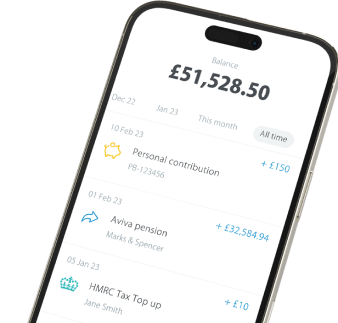
Business owners will face higher tax bills from April 2023, as corporation tax will increase for larger firms and the tax-free dividend allowance is being halved to £1,000. Corporation tax is currently 19% for all businesses. But from 1 April 2023 it’ll rise to 25% for limited companies making taxable profit of more than £250,000 a year. If you run a profitable business, you may be wondering if you’re taking advantage of all the tax efficiencies available.
Below we explore the top ways to be tax efficient before drawing an income from your company.
1. Take advantage of tax-free allowances
When running a limited company, the first consideration is how to pay yourself. Typically, business owners pay themselves a monthly salary of around £1,000. This should be tax-free, as UK residents can earn up to £12,570 a year free of income tax (the Personal Allowance).
Directors may then choose to pay themselves through regular or monthly dividends for income above this. Dividends are paid from company profits, after expenses have been deducted and corporation tax charged.
The benefit of paying yourself in this way, is that the tax rate on dividends is lower than income tax, and no National Insurance is payable on dividend income. There’s also a tax-free dividend allowance of £2,000 a year for this tax year (2022/23), although this allowance will fall to £1,000 from tax year 2023/24 and to £500 from tax year 2024/25.
The below table shows the current dividend and income tax rates:
| Tax band | Tax rate on dividends over tax-free allowance | Income tax rates above Personal Allowance |
|---|---|---|
| Basic rate | 8.75% | 20% |
| Higher rate | 33.75% | 40% |
| Additional rate | 39.35% | 45% |
Bear in mind that dividend payments can’t be offset against corporation tax (unlike a director’s salary). But overall, take-home pay is likely to be higher through dividends than a salary.
2. Contribute to a pension
Paying into a pension’s not only important for a comfortable retirement – it can also reduce your company’s corporation tax bill as pension contributions are usually considered to be an allowable business expense.
You can make contributions directly from your company and benefit by saving on corporation tax. Making contributions through your company could also be beneficial if your official salary’s low (because you mostly pay yourself in dividends), but you want to make pension contributions above this amount. We explain more here about the benefits of contributing to a pension from your limited company.
You can also read more about maximising personal contributions to your pension.
3. Keep net income below £100,000
UK workers face a 60% tax charge once their annual income hits £100,000. This is because the £12,570 Personal Allowance falls by £1 for every £2 of earnings above £100,000 (it’s lost altogether once earnings hit around £125,000).
For workers with children, the financial hit’s more pronounced. Tax-free childcare - which entitles you to up to £2,000 a year per child towards the cost of childcare - stops once an individual’s earnings hit £100,000. To keep earnings below £100,000, you could consider contributing to a pension or leave the money in the business. The money could be paid at a later time, perhaps if you have a slower year.
4. Claim trivial benefits
A company can provide employees and directors with ‘trivial benefits’ of up to £50 each time and claim corporation tax relief on the cost. A trivial benefit is a token of appreciation or gesture of goodwill. For example, you might want to send flowers on an employee’s birthday.
If your company employs or has shareholders of five people or fewer, the total that can be claimed in trivial benefits per tax year is £300. Trivial benefits are separate to HMRC’s tax relief for holding an annual event such as a festive party.
5. Utilise capital allowances
Capital allowances allow you to deduct the cost of machinery or business vehicles from your company’s corporation tax bill. Companies investing in qualifying new plant and machinery assets can claim a ‘super-deduction’ until 31 March 2023, cutting their tax bill by up to 25p for every £1 they invest.
The super-deduction incentive was introduced in April 2021 to encourage businesses to invest and grow during the COVID-19 pandemic. What qualifies as a capital allowance can be complex, and the government’s website has more information on how to claim capital allowances.
6. Take out protection insurance
You could take out a life insurance policy through your company and benefit from tax relief. Also known as ‘relevant life insurance’, your beneficiaries get a lump sum if you die during the term of the policy. The premiums (the cost of the insurance) are paid by the company and are treated as a deductible expense against corporation tax.
Overall, running a limited company can be a great way to receive income in a flexible way. Managing a business can be hard work so make sure you consider all the available tax efficiencies to get the most from it.
Elizabeth Anderson is a Personal Finance Journalist and Editor (Times Money, Metro and i paper).
Risk warning
As always with investments, your capital is at risk. The value of your investment can go down as well as up, and you may get back less than you invest. This information should not be regarded as financial advice.






